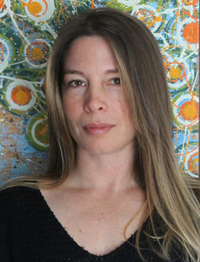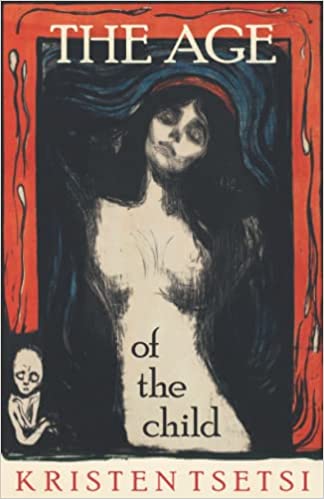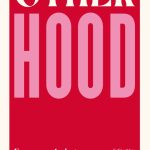I recently had the pleasure of talking with author Kristen Tsetsi about her new provocative novel, The Age of the Child. Yes, a novel; while I focus on nonfiction in my review collection, there are always worthy exceptions! Set in a futuristic time in America, Kristen tells a story of what could come from a society ruled by anti-choice laws. I couldn‘t agree more with Brian Felsen, founder of BookBaby, that this story develops as “unnervingly plausible.” Check out my Q&A with Kristen:
Tell readers a bit about The Age of the Child and its story line.
The Age of the Child closely follows two generations of women, Katherine in the first and Millie in the second, each living in her own period of reproductive rights restrictions imposed in accordance with the “Citizen Amendment,” ratified to protect the nation’s children. The first period of reproductive rights restrictions carries out the original intent of the Citizen Amendment, which is to assure every potential citizen has an equal right to life. Birth control has been banned and abortions are criminalized.
This is the period inhabited by Katherine, a childfree woman who finds herself pregnant and whose appointment for an abortion is unceremoniously canceled when the last reproductive health clinics are forced to close. Without legal abortion as an option, Katherine has to find another way to escape parenthood in an environment in which herbs are rationed and pro-creation vigilantes hover as a constant threat.
The second period of reproductive rights restrictions begins over a decade after the birth control ban, when the disastrous consequences of nearly everyone having children prompts the government to enact parent licensing. Anyone (any sex, any gender) hoping to be a parent–whether adoptive or biological–must undergo an evaluation. Those who pass get a license, and this society reveres licensed “carriers” and parents.
Anyone who tries to circumvent the system–a move the government considers a conscious decision to risk the welfare of a future child–receives a punishment some might argue is worse than death.
This is the world inhabited by Millie, a questionable licensing candidate who decides that she wants to be–she must become–a carrier, whatever the cost.
What inspired you to write a story set in a time of total reproductive control by the government (anti-birth control, anti-abortion, even anti-IVF), and later total governmental control over who gets to become parents?
Initially I only wanted to write about parent licensing. It’s frustrating to see the amount of hypocrisy inherent in the “concern for the children” crowd which, it seemed to me, happened to be the same crowd perpetuating the idea that everyone does, should, and eventually will have children.
Not only is it obnoxious to presume to know what others should do with their lives, but I can’t wrap my head around how anyone professing to love children could possibly feel comfortable cajoling, pressuring, prodding, or poking anyone to have a child unless they personally know that person a) passionately wants a child, and b) would be a conscientious guardian.

Kristen Tsetsi
We treat the idea of birthing and shaping people–that is, being responsible for their emotional and psychological well-beings, their physical health, their safety–with a shrug. “Oh, you’ll figure it out! It’ll all be fine. Just do it. Everybody does it.”
But it doesn’t turn out fine for millions of children. It was anything but fine for a child whose abuse I read about years ago and have never been able to forget because it was so unimaginably awful. More recently, it didn’t turn out fine for the Turpin children. It’s also not fine for those who had kids and then regretted it.
But I digress. Initially I’d planned to write about parent licensing: two friends – one who wanted a child and one who didn’t – living in a world where permission was required to procreate. After thinking about how the story would unfold, though, I realized I couldn’t write about something like parent licensing without first exploring how it might come to be. It seemed logical to me that banning all measures of birth control would be a sure way to get there.
Can you tell us a little about the main characters, Katharine, Lenny, and Millie, and why you develop them the way you do in the story?
I developed Katherine as she is because I’ve never read a novel with a character whose desire to not have children is a straightforward and simple lack of desire to be a parent. What I have seen are female characters who claim to not want a child, but whose rejection of parenthood turns out to be a defense mechanism to protect them from the possibility that they can’t have children. (Secretly, they want them, as all “good” women do.)
I wanted to offer a character whose desire to not have children is undeniable. Palpable, even. And above all, unchanging. No matter what.
With Millie and Lenny, first and foremost I developed them to combat the Madonna/whore stereotypes as they relate to women’s reproductive intent. The stereotypes: women who don’t want children are selfish and cold; women who do want children are warm, nurturing, selfless, etc.
As products of their society, contributing enormously to their development as people is that Lenny was born to a couple who had always wanted children and loved being parents. Millie, on the other hand, was born to a woman who never wanted to be a mother but was forced into it by the Citizen Amendment, and to a father who’s … complicated.
What social and ethical issues do you want to shine light on the most through this story?
The Age of the Child essentially asks these questions:
- What might be the real-world consequences of the anti-choice proponents at the farthest end of the spectrum getting what they want–no birth control, no abortion—thereby securing their choice to have children while eliminating the choice not to?
- What if the government determined that the best way to carry out the pro-creation activists’ goal to protect the children – even at the cost of an individual’s right to bodily integrity – was to subject potential parents to an evaluation and government licensing?
- What would it look like if, rather than questioning the childfree or those who want an abortion, questions were directed at those who want children? (“Have you thought about the potential impact on your psychological state?” “What’s really behind your desire to have children?”)
What other take aways do you want readers to have from reading this book?
Above all, I want readers to be engaged by the story. I also want readers to come away with compassion for the story’s difficult characters. Most of them were born into undeniably challenging circumstances.
****************************
In addition to The Age of the Child, under the name Chris Jane, Kristen is the author of the novels Pretty Much True (previously Homefront under her own name) and The Year of Dan Palace. She has been an adjunct English professor, a reporter/features writer for a daily newspaper, and an instructor of expressive screen and play writing.
Learn more about Kristen and her work at kristenjtsetsi.com


